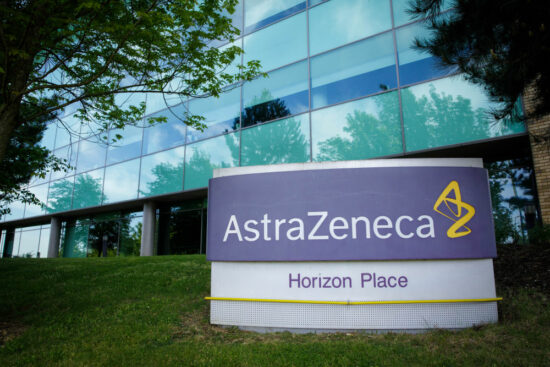A spokesman for AstraZeneca said in a statement on the 22nd that due to the decline in production capacity of a production plant, the initial production will be lower than expected.
The European Union has ordered at least 300 million doses of coronavirus vaccine from AstraZeneca, and may purchase 100 million more doses.
In a statement, an AstraZeneca spokesman said that tens of millions of doses of vaccine will be supplied to the European Union in February and March, while increasing production capacity.
AstraZeneca did not disclose the reason for the decline in production capacity.
The European Commission said that AstraZeneca informed the European Union on the 22nd that the vaccine delivery plan had changed, and the European Union was working to learn more details.
A senior AstraZeneca executive revealed that the company was scheduled to deliver about 80 million doses of vaccine to the European Union by the end of March, but due to production problems, the first quarter delivery will be reduced by about 60% to 31 million doses.
AstraZeneca told EU officials that a pharmaceutical plant operated by its partners had production problems, an EU official confirmed.
The AstraZeneca executive said that the delivery of vaccines to the EU will begin on February 15 as planned.

Stela Kiriakhidis, the European Commission’s Commissioner for Health and Food Safety, said on social media that EU governments are “deeply dissatisfied” with AstraZeneca’s cut in initial vaccine delivery and insisted that AstraZeneca have a clear delivery schedule to develop a vaccination plan.
The European Drug Administration is scheduled to decide before the 29th whether to approve the launch of the coronavirus vaccine jointly developed by AstraZeneca and the University of Oxford in the United Kingdom.
Austria, Denmark and Greece intend to pressure the agency to approve the use of AstraZeneca vaccine as soon as possible.
At present, the vaccine has been authorized for emergency use in the UK.
The coronavirus vaccine jointly developed by Pfizer Pharmaceuticals of the United States and the German biotechnology company has been approved by the European Union, and Pfizer has recently slowed down the delivery of the vaccine on the grounds that its Belgian pharmaceutical plant needs to be modified to improve production capacity.
Reuters reported that AstraZeneca’s reduction of initial delivery has made the EU’s vaccination plan worse.
Italy and Poland have warned that Pfizer may be brought to court.



